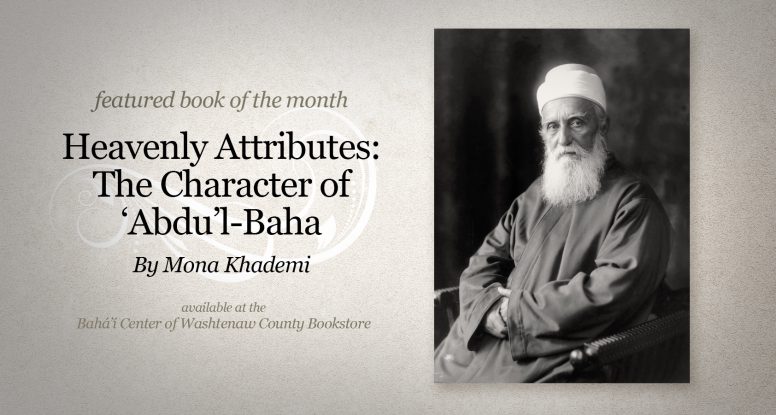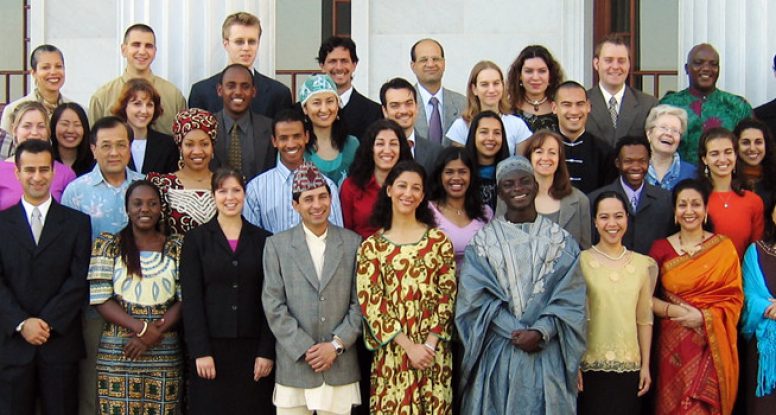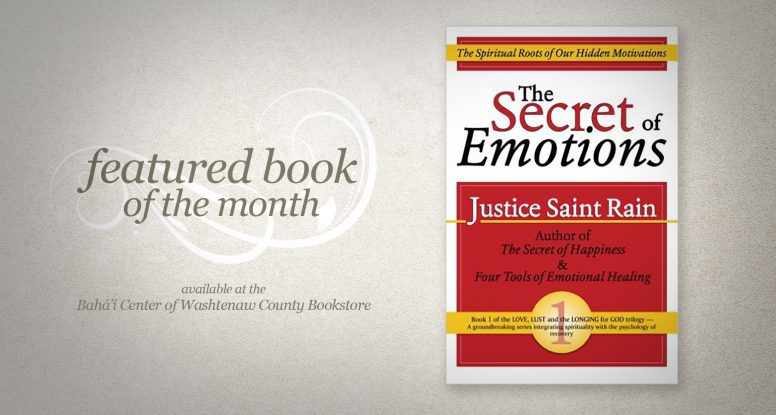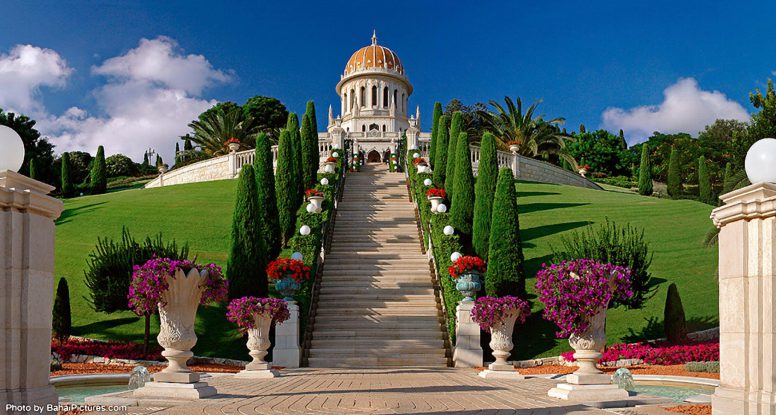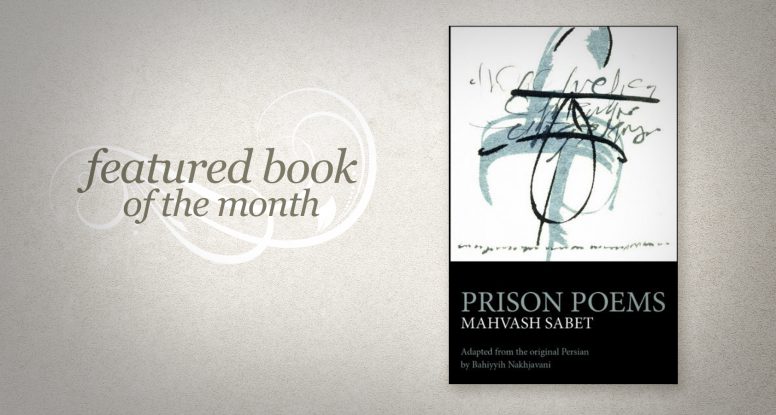Mona Khademi’s book is a short collection of reminiscences of four early Baha’is who each spent a period of their lives in the presence of ‘Abdu’l-Baha. The memories are from different points in the life of ‘Abdu’l-Baha, and have been selected by the author to illustrate different virtues as exemplified by the person known to Baha’is as the Master. Together, they also illuminate various parts of his personality and overall character. The four early Baha’is are two easterners and two westerners: Mirza Badi Bushrui, Dr. Habib Moayyad, Lady Sara Blomfield, and Howard Colby Ives.
June 8, 2016
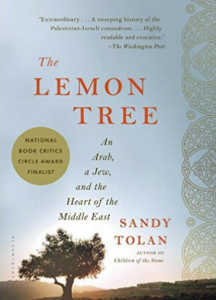 Our meeting included some new members, which expanded the discussion and added new context. The book selection was The Lemon Tree: an Arab, a Jew, and the Heart of Palestine by Sandy Tolan. This non-fiction book tells the history of Palestine, with emphasis on the period from 1948 to the present. At its center are two families, one Arab and one Palestinian, who both have histories with a house in what is now Israel. An unlikely friendship develops between a young Jewish woman who currently occupies the home built by the Arab father for his family, and the young Arab student revisiting the home his family was forced to leave. The author presents a comprehensive and balanced picture of the struggle history has given both Arabs and Jews in Palestine as he develops the story of the struggle of the two characters to understand each other and to become and remain friends.
Our meeting included some new members, which expanded the discussion and added new context. The book selection was The Lemon Tree: an Arab, a Jew, and the Heart of Palestine by Sandy Tolan. This non-fiction book tells the history of Palestine, with emphasis on the period from 1948 to the present. At its center are two families, one Arab and one Palestinian, who both have histories with a house in what is now Israel. An unlikely friendship develops between a young Jewish woman who currently occupies the home built by the Arab father for his family, and the young Arab student revisiting the home his family was forced to leave. The author presents a comprehensive and balanced picture of the struggle history has given both Arabs and Jews in Palestine as he develops the story of the struggle of the two characters to understand each other and to become and remain friends.
May 11, 2016
The May Circle of Friends Book Club meeting was held May 11, 2016, and included discussions of a variety of topics related to books presented by bookclub members. Monkeys, Myths, and Molecules by Dr. Joe Schwarcz, Fracture: Barack Obama, the Clintons, and the Racial Divide by Joy-Ann Reid, Race Amity: A Primer on America’s Other Tradition by W.H. Smith and Richard Thomas, and The Lemon Tree by Sandy Tolan, were all presented by individual club members. These selections engendered lively discussions on many topics including current television and internet personalities that may not be able to substantiate information they are disseminating, the role of our current President in the political climate of the upcoming presidential election, race amity as opposed to enmity in American history, and the Palestinian conflict. A club member also brought along some “Mummy’s Nummie Yummies” for us to sample (thank you Sandra!).
The following article is from bahai.org
The conviction that we belong to one human family is at the heart of the Bahá’í Faith. The principle of the oneness of humankind is “the pivot round which all the teachings of Bahá’u’lláh revolve”.
This book is the first of a trilogy of books that address human emotions through both a psychological and spiritual lens. It offers a synthesis of the two approaches that appears uniquely suited to Baha’is and others interested in improving their self-awareness and understanding, and exploring the role of emotions in human behavior and spiritual development.
The following article is from bahaiblog.net | PHOTO: Shrine of the Báb by BahaiPictures.com
Baha’is around the world celebrate the 22nd May 1844 as the day of the declaration of The Báb, who was the forerunner of Baha’u’llah the founder of the Baha’i Faith.
Baha’is view The Báb as a Messenger of God, who had a role that can be likened to John The Baptist (who told of the coming of Christ) in heralding the coming of the latest Manifestation of God: Baha’u’llah.
The events surrounding the declaration of The Báb have been told in many ways, but perhaps the most widely read is the account in The Dawn-Breakers: Nabíl’s Narrative of the Early Days of the Bahá’í Revelation. This book was written by Nabil (one of the Letters of the Living), and chronicles the early days of the revelation of The Báb and Baha’u’llah.
Adapted from the original Persian by Bahiyyih Nakhjavani
Based on translations by Violette and Ali Nakhjavani
This book is a collection of poems written by Mahvash Sabet, a Bahá’í woman in Iran who served as secretary of the Yaran (the council responsible for directing Bahá’í affairs in Iran), and who was imprisoned in 2008. Held for two and a half years without a proper hearing, she and her fellow Yaran members were convicted and sentenced to twenty years imprisonment in 2010. Historical background of interest to the reader is provided in both the Foreword, by Mahnaz Parakand (one of four lawyers defending the Yaran), and in the Note on the Translations by Bahiyyih Nakhjavani.
(The following article is from bahaiblog.net)
As we join Baha’is around the world in celebrating the 12 day festival of Ridvan, we thought it would be great to share 12 things you should know about these special days which signify the 12 days Baha’u’llah spent in the Garden of Ridvan in Baghdad, so let’s begin!
1. The Word
Ridvan literally translates to “paradise” in the Arabic language and can be used as such in Baha’i Holy Writings to describe a place or station of spiritual beauty and significance. In phrases such as the “Ridvan of the divine Presence” or the “Ridvan of resplendent glory”, we understand Ridvan to be synonymous with the word Paradise.
2.The Festival
Ridvan in common Baha’i speak refers most often to the Festival of Ridvan – a 12-day yearly festival held from April 21st to May 2nd to commemorate the 12 days Baha’u’llah spent in the Garden of Ridvan in Baghdad in 1863, during which time He declared His Prophetic Mission to His followers and announced His station as the Promised One of all religions. Ridvan, together with the Declaration of the Bab, are designated by Baha’u’llah as “the two Most Great Festivals” and are attributed according significance in the Baha’i calendar and celebrated as such in the Baha’i world. The 1st, 9th and 12th days of Ridvan are considered Holy Days, on which work should be suspended.
Fasting is the voluntary abstention from food and drink. Periods of fasting are found in all of the major world religions, and the practice has been significant throughout human history. For Bahá’ís, fasting is observed from sunrise to sunset during the Bahá’í month of `Ala’ (Loftiness), between March 1st/2nd through March 19th/20th, which immediately precedes the Bahá’í New Year. It is a a time of prayer, meditation, and spiritual rejuvenation. Along with obligatory prayer, it is one of the greatest obligations of a Bahá’í and is intended to bring the person closer to God.

